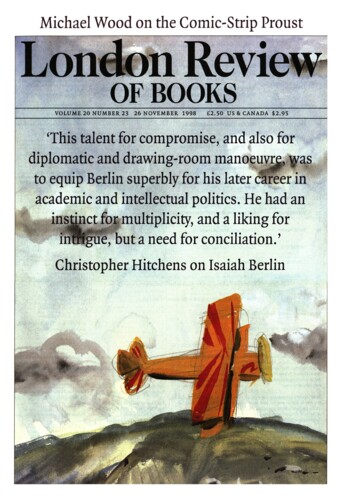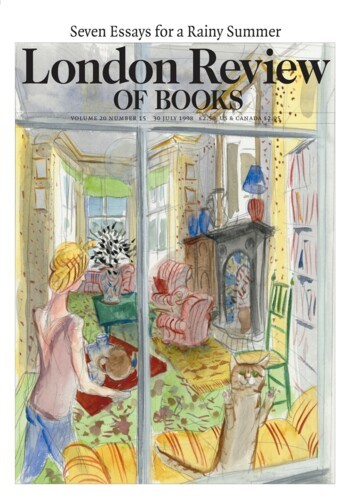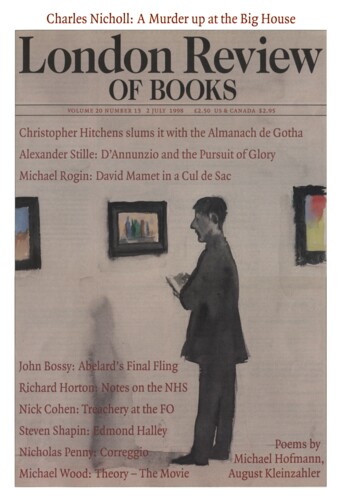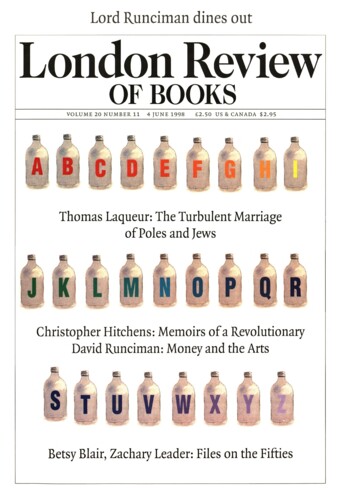Moderation or Death: Isaiah Berlin
Christopher Hitchens, 26 November 1998
In The Color of Truth, the American scholar Kai Bird presents his study of McGeorge (‘Mac’) and William Bundy. These were the two dynastic technocrats who organised and justified the hideous war in Vietnam. Cold War liberals themselves, with the kept conservative journalist Joseph Alsop they formed a Three of Hearts in the less fastidious quarters of Washington DC. Another player made up an occasional fourth man. Isaiah Berlin was happy, at least when Charles (Chip) Bohlen was unavailable, to furnish an urbane ditto to their ruthlessness. Almost as if to show that academics and intellectuals may be tough guys, too – the most lethal temptation to which the contemplative can fall victim – Berlin’s correspondence with this little cabal breathes with that abject eagerness that was so much a part of the one-time Anglo-American ‘special relationship’. To Alsop he wrote, on 20 April 1966, an account of a dinner with McGeorge Bundy:’‘




